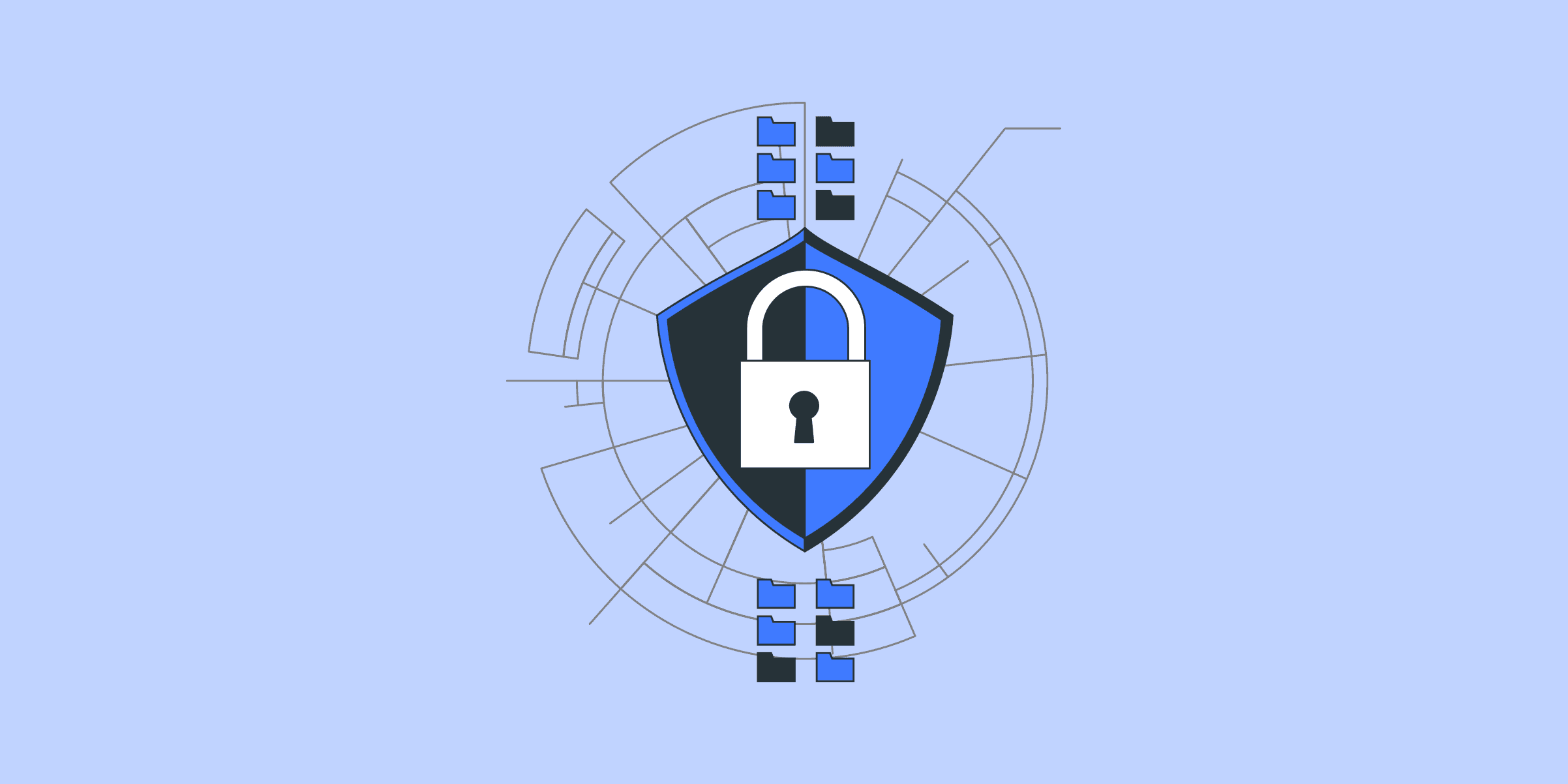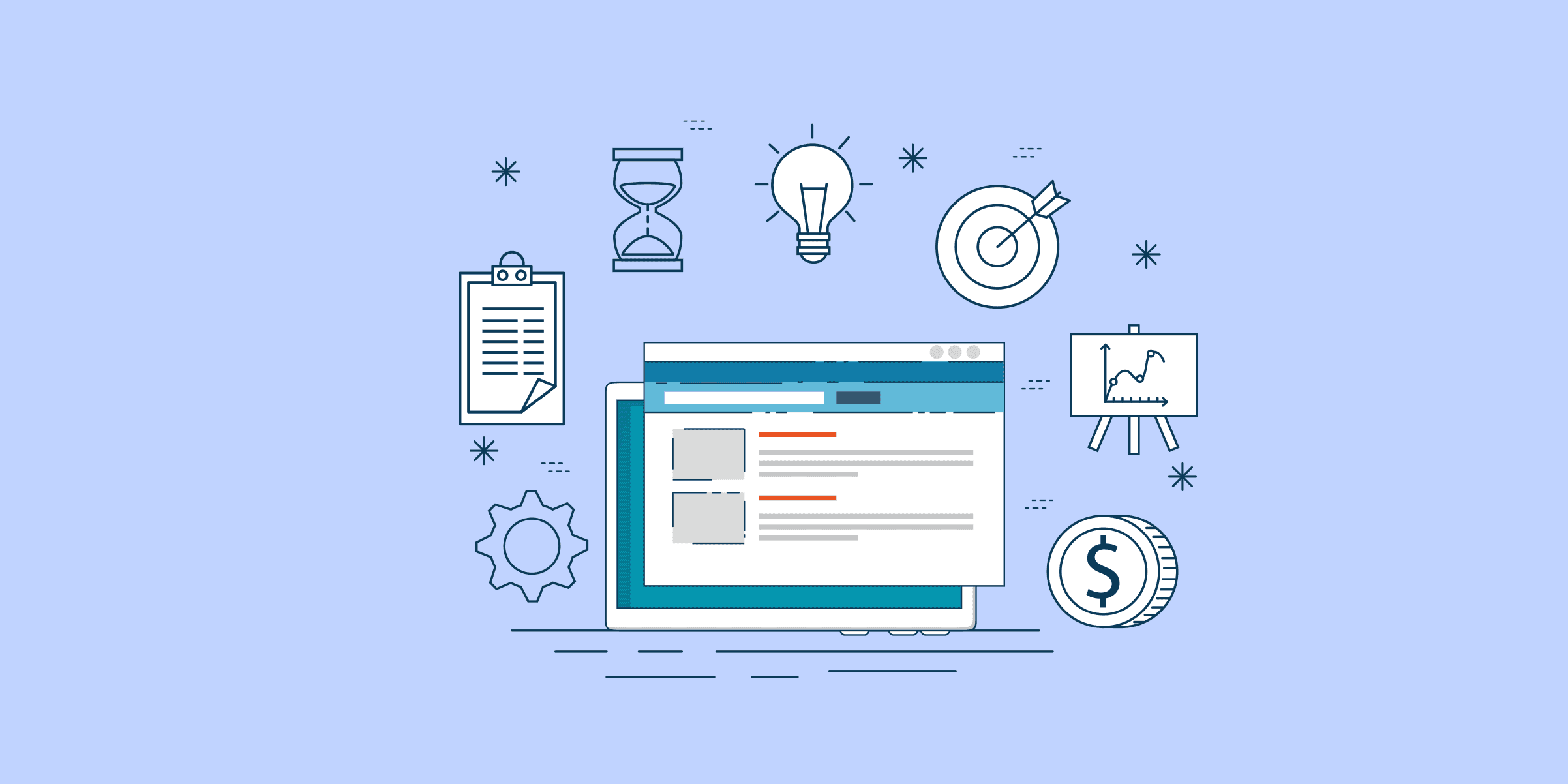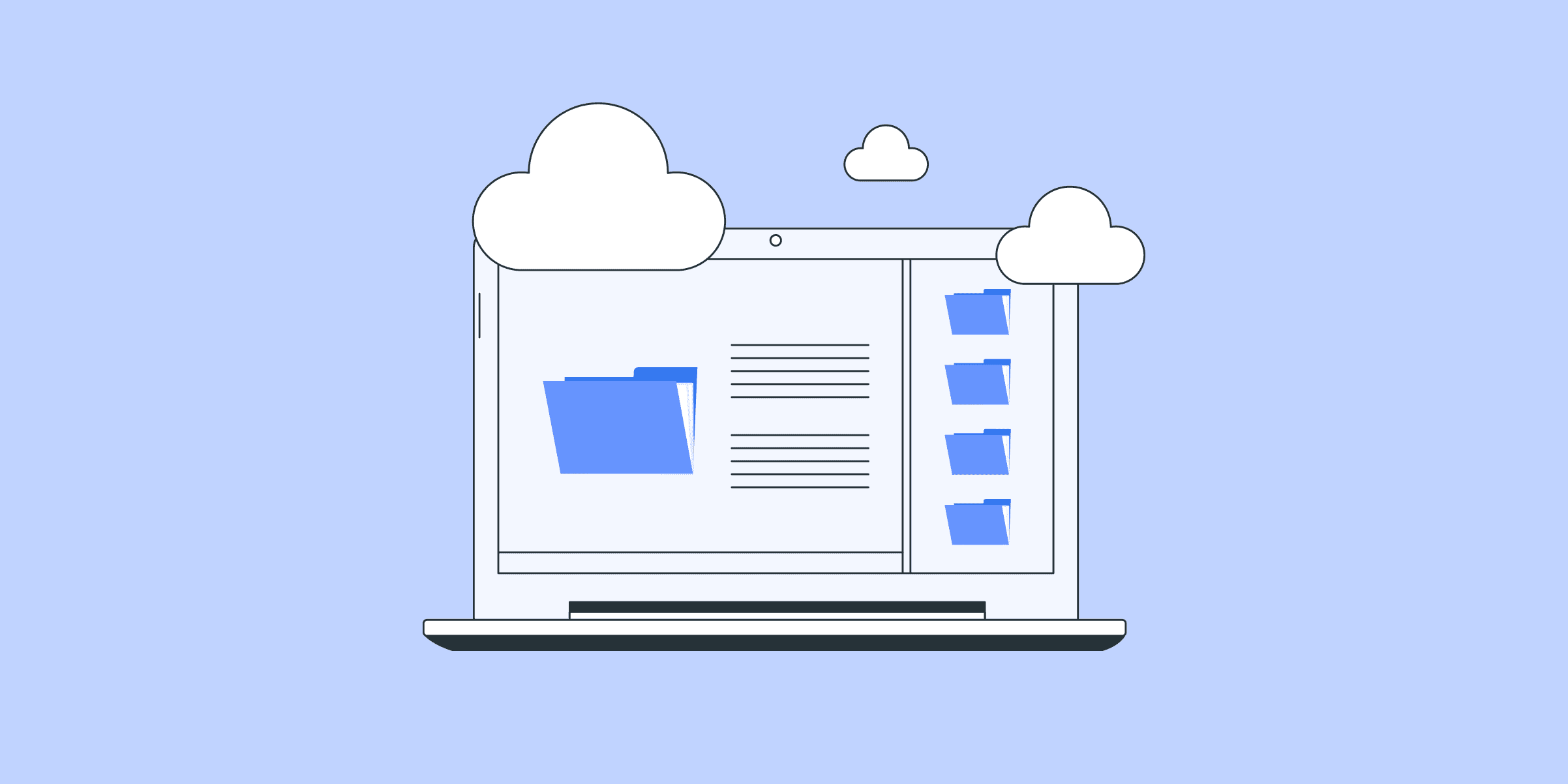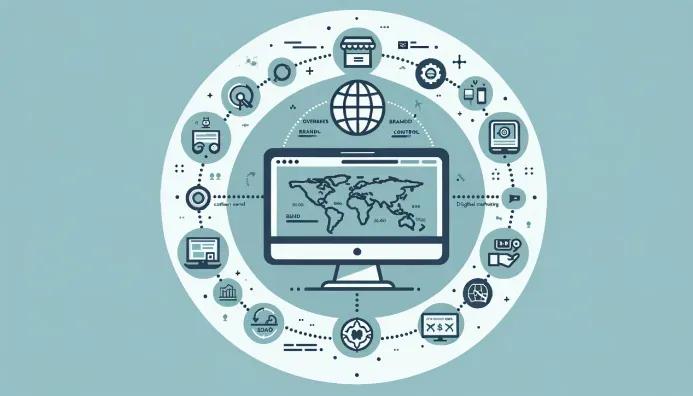海外代理

Choosing Between SOCKS Proxy and HTTP Proxy: A Comprehensive Guide
In today's world where network security and privacy protection are increasingly important, using a proxy server has become a common choice for many users and businesses. SOCKS proxies and HTTP proxies are two prevalent types, but they differ in functionality, usage, and performance. This article explores the differences between these two proxies and their respective advantages to help you make a more informed decision.1. What is an HTTP Proxy?Definition of HTTP ProxyAn HTTP proxy is a server designed specifically for the HTTP protocol, acting as an intermediary for HTTP requests and responses between a client and a server. HTTP proxies are primarily used for web browsing and other applications that rely on the HTTP protocol.Advantages of HTTP ProxyOptimized Web Browsing Experience: HTTP proxies can cache web content, speeding up web page loading times and reducing bandwidth consumption.Content Filtering: HTTP proxies can filter out unwanted content based on predefined rules, making them suitable for content control in home and business environments.Anonymity and Security: By hiding the user's real IP address, HTTP proxies provide a certain level of privacy protection.Limitations of HTTP ProxyProtocol Limitation: HTTP proxies only support HTTP and HTTPS traffic, making them unsuitable for other types of network traffic.Transparency Issues: Some HTTP proxies might expose parts of the client's information, such as the X-Forwarded-For header, reducing anonymity.2. What is a SOCKS Proxy?Definition of SOCKS ProxyA SOCKS proxy is a general-purpose proxy server capable of handling all types of network traffic, including HTTP, HTTPS, FTP, SMTP, POP3, and more. SOCKS proxies pass all data packets between the client and the server without analyzing their content.Advantages of SOCKS ProxyMulti-Protocol Support: SOCKS proxies can handle any type of network traffic, not just HTTP, making them suitable for a wider range of applications such as gaming, P2P networks, email clients, and more.Higher Anonymity: SOCKS proxies do not analyze the data packets being transmitted, offering higher privacy protection.Less Traffic Filtering: Since SOCKS proxies do not inspect the content of data packets, they typically do not filter any content, making them suitable for applications that require full data transmission.Limitations of SOCKS ProxyNo Caching Capability: SOCKS proxies do not cache any data, so they cannot speed up web page loading or reduce bandwidth consumption.More Complex Configuration: Compared to HTTP proxies, SOCKS proxies can be more complex to set up and configure, requiring users to have some technical knowledge.3. How to Choose the Right Proxy?Scenarios for Choosing an HTTP ProxyPrimarily for Web Browsing: If your main needs are web browsing, online shopping, or accessing social media, an HTTP proxy is a good choice.Need for Content Filtering: In environments where content control and filtering are needed, such as home and business networks, an HTTP proxy is more suitable.Optimizing Web Page Loading Speed: If you want to speed up web page loading and reduce bandwidth consumption, the caching function of an HTTP proxy can be helpful.Scenarios for Choosing a SOCKS ProxyMulti-Protocol Support: If you need to handle multiple types of network traffic, such as gaming, P2P downloads, email clients, etc., a SOCKS proxy is the better choice.High Anonymity and Privacy Protection: If your primary needs are anonymity and privacy protection, a SOCKS proxy can provide a higher level of privacy.No Need for Content Caching and Filtering: In cases where web caching and content filtering are not required, a SOCKS proxy is more appropriate.ConclusionSOCKS proxies and HTTP proxies each have their unique advantages and applicable scenarios. The right choice of proxy type should be based on your specific needs and usage environment. If your primary requirements are web browsing and content control, an HTTP proxy is an ideal choice. For users needing to handle various network traffic types and seeking high anonymity and privacy protection, a SOCKS proxy offers a more comprehensive solution. Understanding the differences and benefits of these two proxies can help you better protect your online privacy and enhance your internet experience.

How Proxy IPs Benefit Transforming Enterprises
In the current wave of digital transformation, enterprises face unprecedented challenges and opportunities. Transforming enterprises need to quickly adapt to market changes, enhance operational efficiency, and improve competitiveness. As a technical tool, proxy IPs play a crucial role in driving the digital transformation of enterprises. This article explores how proxy IPs help transforming enterprises achieve their goals.What is a Proxy IP?A Proxy IP is a technology that routes network traffic through a proxy server, thereby hiding the user's real IP address and enabling anonymous access to network resources. Depending on their usage and configuration, proxy IPs can be categorized into different types, such as HTTP proxies, HTTPS proxies, and Socks proxies.Specific Benefits of Proxy IPs for Transforming Enterprises1. Protecting Corporate Data SecurityDuring the digital transformation process, enterprises handle large amounts of sensitive data, including customer information and transaction records. Proxy IPs can hide the real IP addresses of enterprises, reducing the risk of hacker attacks. Additionally, proxy IPs can prevent data traffic from being intercepted and tampered with, ensuring the integrity and confidentiality of data.2. Enhancing Network Access Speed and StabilityProxy IPs can improve the speed and stability of network access for enterprises through traffic distribution and load balancing. This is especially important for enterprises that need frequent access to external resources or large-scale data transmission. For example, e-commerce companies can use proxy IPs to increase website access speeds, enhance user experience, and thus increase sales conversion rates.3. Overcoming Regional Restrictions and Expanding Business ReachMany countries and regions impose restrictions on internet access, posing challenges to the global operations of enterprises. By using proxy IPs, enterprises can bypass regional restrictions and access network resources worldwide. This is particularly important for companies looking to expand their international markets. For instance, market research firms can use proxy IPs to access websites from various countries, collect market data and competitive information, and develop more accurate marketing strategies.4. Improving Network Marketing EffectivenessDigital marketing is a crucial component of enterprise transformation, and proxy IPs can help enterprises enhance their network marketing effectiveness. Through proxy IPs, enterprises can manage multiple accounts, increasing the efficiency of social media operations. Additionally, companies can use proxy IPs for web scraping to gather data on competitors and industry trends, optimizing their own marketing strategies.5. Reducing Operational CostsUsing proxy IPs can help enterprises lower operational costs. For example, companies can use proxy IPs for traffic testing to determine the best advertising strategies, reducing unnecessary ad spending. Furthermore, proxy IPs can assist enterprises in price monitoring to identify the most optimal supply chain management solutions, thereby lowering procurement costs.ConclusionDuring the process of digital transformation, enterprises need to continuously seek innovation and change to maintain their competitive edge. As a powerful technical tool, proxy IPs can support transforming enterprises in multiple ways, including protecting data security, enhancing network access speed, overcoming regional restrictions, improving marketing effectiveness, and reducing operational costs. Therefore, enterprises should actively explore and apply proxy IP technology to aid in their digital transformation journey.

How Stable Are Static Residential IPs – An In-Depth Analysis
In the internet age, the importance of IP addresses cannot be overstated. Whether for businesses or individuals, users have high expectations for the stability of their network connections. Static residential IPs, as a special type of IP, are highly valued for their stability. This article will provide an in-depth analysis of the stability of static residential IPs and explore their advantages in various scenarios.What is a Static Residential IP?A Static Residential IP is a fixed IP address assigned to residential users by an Internet Service Provider (ISP). Unlike dynamic IPs, static residential IPs do not change over time or with connection status, thus maintaining a long-term stable network identifier.Stability Advantages of Static Residential IPs1. Persistent IP AddressThe most notable feature of a static residential IP is its persistence. Users do not need to worry about their IP address changing over time, which is crucial for applications requiring long-term stable network connections. For instance, enterprise remote work systems and remote monitoring systems need fixed IP addresses to ensure stable connections and management.2. Reduced Network InterruptionsDynamic IP addresses may change every time the internet connection is reset, potentially causing brief network interruptions. Static residential IPs can avoid this issue, providing a more stable network connection, reducing downtime, and improving work efficiency and user experience.3. Enhanced Network SecurityUsing a static residential IP makes it easier to set up network security policies. For example, enterprises can implement access control and permissions management for specific static IP addresses, enhancing overall network security. Additionally, fixed IP addresses facilitate monitoring and auditing, helping to identify and respond to potential security threats promptly.4. Stable Access SpeedStatic residential IPs generally offer a more stable network connection speed, which is crucial for applications requiring high bandwidth and low latency. For example, online gaming, video conferencing, and real-time data transmission all need a stable and fast network connection, which static residential IPs can provide.Application Scenarios for Static Residential IPs1. Network ServersFor users running network servers, static residential IPs ensure the stability and accessibility of the servers. For instance, internal database servers and mail servers in enterprises need stable IP addresses to provide uninterrupted services.2. Remote WorkWith the rise of remote work, more companies need to connect remotely via the internet. Using static residential IPs can ensure stable connections for remote work systems, improving employee efficiency and collaboration.3. Smart HomeThe proliferation of smart home devices makes the stability of home network connections increasingly important. Static residential IPs ensure the stable operation of smart home devices, providing a better user experience.4. E-commerceFor e-commerce businesses, a stable network connection is critical. Static residential IPs help e-commerce websites maintain stable operations, ensuring users can smoothly complete shopping and payment transactions.ConclusionDue to their persistence and stability, static residential IPs are ideal for many applications. Both businesses and individuals can benefit from the stable network connections that static residential IPs provide. As internet applications continue to proliferate, the demand for static residential IPs will continue to grow, becoming an indispensable part of network infrastructure.

The Difference Between Proxy IP and Node: A Comprehensive Analysis
In the world of the internet, proxy IPs and nodes are two frequently mentioned concepts, especially in the fields of network security, data scraping, and privacy protection. Although they are sometimes confused, there are significant differences in their functions and uses. This article will provide an in-depth analysis of the basic concepts, uses, and differences between proxy IPs and nodes to help readers better understand these technologies.What is a Proxy IP?A proxy IP, or proxy server, is an intermediary server that acts as a bridge between the user and the target website. When a user accesses the internet through a proxy IP, it is the proxy server that makes requests to the target website on behalf of the user and then forwards the response from the website back to the user. This way, the user's real IP address is not identified by the target website, thus achieving the purpose of hiding the user's identity.Main Functions of Proxy IPsHide IP Address: The user's real IP address is not obtained by the target website, protecting the user's privacy.Bypass Regional Restrictions: By using proxy IPs located in different regions, users can access content that is restricted by geographical location.Enhance Security: In some cases, proxy servers can provide additional security protection, such as filtering malicious websites and intercepting harmful data.Load Balancing: In corporate environments, proxy servers can be used to distribute traffic, improving network performance.What is a Node?A node is a broader concept that refers to any device that can send, receive, or relay information within a network. The specific meaning and function of a node can vary depending on the network architecture. For example, in a peer-to-peer (P2P) network, a node can be any participant; in the Tor network, nodes refer to the relay servers that help transmit information.Main Functions of NodesInformation Relay: Nodes are responsible for transmitting information within a network and can act as the starting point, intermediate point, or endpoint of data packets.Network Routing: Nodes participate in network routing decisions to ensure data is transmitted via the optimal path.Distributed Computing: In distributed networks, each node may participate in computing tasks, enhancing the overall computing power.Data Storage: Some nodes are responsible for storing data, providing data access and backup services.Differences Between Proxy IP and NodeDefinition and Use:Proxy IP: Primarily used to hide the user's real IP address, enhance network privacy and security, and bypass regional restrictions.Node: A broader term referring to any device involved in network communication, used for relaying and processing information.Operational Level:Proxy IP: Usually operates at the application layer, mainly targeting HTTP/HTTPS and other high-level protocols.Node: Can exist at various levels of the network, including the physical layer, data link layer, network layer, and transport layer.Specific Functions:Proxy IP: Focuses on privacy and security protection, and the ability to bypass regional restrictions.Node: Provides information relay, network routing, distributed computing, and data storage functions.Application Scenarios:Proxy IP: Commonly used by individual users needing to hide their identity, enterprises needing load balancing, and network management.Node: Widely used in various network architectures such as P2P networks, blockchain, cloud computing, and IoT.ConclusionProxy IPs and nodes play different but equally important roles in the network world. Proxy IPs are mainly used to hide the user's real IP address and enhance privacy and security, while nodes are a broader concept encompassing all devices involved in transmitting and processing information within a network. Understanding these differences helps us better apply these technologies to enhance network security and efficiency. Whether for individuals or businesses, choosing the right technology to meet specific needs is crucial.

The Necessity of Dynamic IP Rotation in Proxy Management
In the world of IP proxy services, dynamic IP rotation stands as a cornerstone technology that enhances anonymity, reduces the risk of blacklisting, and ensures efficient data access. This blog post explores why continuous dynamic rotation is crucial in proxy management, detailing its benefits and implications for various online activities.Understanding Dynamic IP RotationDynamic IP rotation is a process where the IP address assigned to a user or a task changes automatically after a set period or after every request. This technique is employed by proxy servers to allocate a different IP address from their pool, ensuring that no single IP address is overused.Key Benefits of Dynamic IP Rotation1. Enhanced Anonymity and Security:The primary advantage of dynamic IP rotation is the enhanced anonymity it provides. By frequently changing the IP address, it becomes significantly more difficult for websites, services, or cyber attackers to track user activity or pinpoint their actual location. This not only protects users’ privacy but also secures sensitive information from potential interception.2. Avoidance of Rate Limits and IP Bans:Many websites impose rate limits or ban IP addresses that exhibit unusual behavior, such as excessive requests within a short timeframe, which are often associated with web scraping or automated queries. Dynamic IP rotation mitigates this risk by spreading the requests across multiple IPs, thereby diluting the footprint and avoiding detection by anti-scraping technologies.3. Improved Access to Geo-restricted Content:Dynamic rotation allows users to access content from multiple geographical locations without needing to manually switch between proxies. This is particularly useful for businesses that need to test ads or access services across different regions, as well as for individuals who wish to bypass geo-restrictions imposed by streaming or news services.4. Increased Success Rates in Data Scraping:For data scraping, having a dynamic set of IP addresses can dramatically increase the success rate of data extraction efforts. Rotating IPs can prevent the scraper from being blocked, especially when dealing with websites that have strong anti-bot measures.5. Load Balancing:Using dynamic IP rotation helps in balancing the load among several servers. This can prevent any single proxy server from being overloaded with requests, which can degrade performance and increase the risk of server failures.Practical Scenarios Where Dynamic IP Rotation is Essential1. Competitive Intelligence:Businesses gathering competitive intelligence need to operate without exposing their corporate network. Dynamic IP rotation enables them to stealthily collect necessary data, ensuring that their market research activities remain confidential and effective.2. SEO and Digital Marketing:SEO professionals and digital marketers often rely on proxies to simulate searches from different locations to check search engine rankings or verify ads. Dynamic IP rotation is critical here to mimic genuine user behavior across diverse locations.3. Cybersecurity Measures:In cybersecurity, testing how a network responds to threats from different IP addresses can help in strengthening defenses. Dynamic rotation facilitates this process by simulating a broad range of attack scenarios.In conclusion, dynamic IP rotation is not just a feature of proxy services but a fundamental mechanism that addresses multiple challenges in managing online interactions. By continuously changing IP addresses, businesses and individuals can enhance their operational security, achieve high-efficiency data access, and maintain compliance with legal and ethical standards. This technology remains indispensable in navigating the complex landscape of the internet today.

Exploring Tunnel IP: A New Frontier in Privacy and Security
In the modern internet world, network security and privacy protection have become increasingly important. With the continuous advancement of technology, various methods have emerged to protect personal information and data security. Among these, Tunnel IP is an efficient and secure technology. This article will delve into the basic concepts, working principles, main uses, and advantages of Tunnel IP to help readers better understand this technology.What is Tunnel IP?Tunnel IP is a method of data transmission that uses tunneling technology. Tunneling involves creating a virtual tunnel between two network nodes to transmit data packets. These data packets are encapsulated during transmission to protect their contents from being intercepted or tampered with by unauthorized third parties. Tunnel IP is widely used in Virtual Private Networks (VPNs) and other scenarios that require secure data transmission.How Tunnel IP WorksThe working principle of Tunnel IP can be divided into the following steps:Encapsulation: The source node encapsulates the data packet within another data packet, a process known as encapsulation. The encapsulated packet contains the original data packet and some additional header information.Transmission: The encapsulated packet is transmitted through the tunnel from the source node to the destination node. During this process, the content of the data packet is unreadable to intermediate nodes.Decapsulation: Upon receiving the encapsulated packet, the destination node decapsulates it, extracts the original data packet, and forwards it to its final destination.This process ensures the privacy and integrity of the data during transmission, preventing unauthorized third parties from accessing or tampering with the data.Main Uses of Tunnel IPVirtual Private Networks (VPNs): Tunnel IP is a core technology in VPNs. VPNs use tunneling to establish a secure channel over the public internet, allowing users to securely access internal networks or internet resources.Secure Remote Access: Businesses and organizations use Tunnel IP technology to protect the data transmission of remote employees, ensuring they can securely access company resources.Privacy Protection: Tunnel IP can hide users' real IP addresses, protecting their online privacy and preventing their activities from being tracked.Bypassing Network Restrictions: In regions with network censorship, users can use Tunnel IP technology to bypass restrictions and access blocked content.Advantages of Tunnel IPHigh Security: Tunnel IP ensures the privacy and integrity of data during transmission through data packet encapsulation and encryption.Privacy Protection: Tunnel IP can hide users' real IP addresses, preventing their online activities from being tracked and monitored.Flexibility: Tunneling technology can be applied to various network protocols and scenarios, offering high flexibility.Cross-Network Transmission: Tunnel IP enables secure communication between different networks, whether across local area networks (LANs) or wide area networks (WANs).ConclusionAs network security threats increase and privacy protection demands rise, Tunnel IP technology becomes increasingly important. By using tunneling technology, secure and private data transmission channels can be established, effectively protecting users' data security and privacy. Whether for individual users or businesses, mastering and applying Tunnel IP technology is a crucial step in enhancing network security. In the future, with continuous technological advancements, Tunnel IP will play a vital role in more fields.

Analyzing the Characteristics and Application Scenarios of Short-Term Premium Proxy IPs
In today’s interconnected digital environment, the use of proxy IPs has become a critical strategy for businesses and individuals alike to maintain privacy, bypass geo-restrictions, and gather data efficiently. Among the various types of proxies available, short-term premium proxy IPs stand out for their specific advantages and applications. This blog post delves into the characteristics of these proxies and the scenarios in which they are most effectively utilized.Characteristics of Short-Term Premium Proxy IPs1. High Anonymity:Short-term premium proxies offer high levels of anonymity, replacing your IP address with one from their pool. This makes it difficult for servers and third-party observers to trace online activities back to the original user’s IP.2. Dynamic Rotation:These proxies are often dynamic, meaning they rotate IPs frequently, sometimes after every request. This feature is crucial for tasks requiring high levels of privacy and minimal risk of detection or blacklisting.3. Optimal Performance:Premium proxies typically guarantee high performance with low latency and high bandwidth. This is essential for applications needing fast response times, such as real-time data scraping or streaming content from restricted regions.4. Reliability and Uptime:Providers of premium proxies ensure higher reliability and uptime compared to free or lower-quality proxies. For businesses, this means less downtime and more consistent access to online resources.5. Limited Duration:As the name suggests, these proxies are available for short durations — ranging from a few minutes to several days. This temporary availability helps in managing costs more effectively while meeting the specific time-bound needs of users.Application Scenarios for Short-Term Premium Proxy IPs1. Web Scraping:Companies use short-term premium proxies extensively for web scraping tasks. The dynamic IP rotation allows them to extract large volumes of data without being flagged as suspicious, which is particularly useful when scraping websites with strict access controls.2. Ad Verification:Marketers and advertisers employ these proxies to verify the proper placement and display of ads across different regions. Short-term proxies help them emulate user interactions from various geographical locations, ensuring that their advertisements are displayed correctly without committing to long-term proxy services.3. Market Research:For time-sensitive market research, utilizing short-term proxies allows businesses to quickly gather and analyze competitor information across different markets without revealing their identity or intent.4. Content Management:Media companies often use short-term proxies to manage and test geo-specific content and restrictions. This ensures that their content is accessible and displays correctly in different regions, adapting to local compliance and regulation.5. Security Testing:In cybersecurity, short-term proxies can be used to simulate attacks from various locations to test the robustness of network security systems without long-term commitments to specific IP addresses.In conclusion, short-term premium proxy IPs provide versatile, high-performance solutions for a variety of temporary but critical online tasks. By understanding the unique features and optimal use cases of these proxies, users can strategically enhance their operations, from data security to market analysis, without incurring unnecessary costs or exposing their activities.

Differences Between Static ISP and Dedicated Data Center: A Guide for Enterprise Network Infrastructure Choices
In today's data-driven business environment, selecting the right network infrastructure is crucial for operational efficiency and security. Static Internet Service Providers (ISPs) and Dedicated Data Centers are two common solutions, each with distinct purposes, functions, and advantages. This article explores the differences between these two options to help enterprises make more informed decisions.1. Static ISP (Static Internet Service Provider)Definition of Static ISPA Static ISP provides internet services with a fixed IP address. Unlike dynamic IP addresses, static IP addresses do not change with each connection, making them advantageous in many applications, especially where stable connections and remote access are needed.Advantages of Static ISPFixed IP Address: Ideal for remote access to devices and services such as web hosting, VPN connections, and remote desktop applications. This ensures consistent address access every time, simplifying management and access.High Availability: Static IPs usually come with more stable connections and lower latency, suitable for businesses that demand high-quality network connectivity.Ease of Setup and Management: Fixed IP addresses simplify the setup and management of network devices, particularly when frequent network configurations are needed.Limitations of Static ISPSecurity Risks: Fixed IP addresses are more susceptible to hacking, requiring additional security measures.Higher Cost: Static IP services typically cost more compared to dynamic IP services.2. Dedicated Data CenterDefinition of Dedicated Data CenterA Dedicated Data Center refers to data center services provided exclusively to a single enterprise or user, with no sharing of servers, storage, network resources, or physical facilities with others.Advantages of Dedicated Data CenterExclusive Resources: Enterprises have access to all computing and storage resources without sharing, ensuring performance and stability.High Security: Dedicated data centers allow complete control over security measures, including firewalls, encryption, and access control, meeting stringent security and compliance requirements.Scalability and Flexibility: Dedicated data centers can scale infrastructure according to enterprise needs without migration or service interruptions.Professional Support: Often accompanied by professional technical support and maintenance services to ensure efficient data center operations.Limitations of Dedicated Data CenterHigh Initial Cost: Establishing and maintaining a dedicated data center requires significant upfront investment.Operational Complexity: Managing and operating a dedicated data center requires specialized technical knowledge and resources.Main Differences Between Static ISP and Dedicated Data CenterPurpose and Application: Static ISPs primarily provide internet connections with fixed IP addresses, suitable for applications requiring stable external access. Dedicated Data Centers, on the other hand, offer comprehensive IT infrastructure, ideal for enterprise applications needing high performance, exclusive resources, and high security.Resource Allocation: Static ISPs provide shared resources with only the fixed IP address being exclusive, while Dedicated Data Centers offer entirely exclusive resources with no sharing.Security: Static ISPs require enterprises to manage their network security, whereas Dedicated Data Centers provide higher security control and measures.Cost Structure: The cost of a Static ISP mainly comes from subscription fees for fixed IP services, whereas Dedicated Data Centers include high costs for infrastructure construction, maintenance, and operation.ConclusionStatic ISPs and Dedicated Data Centers each have their own advantages and suitable scenarios. Enterprises should evaluate their business needs, budget, and technical capabilities when choosing between them. If a stable internet connection and fixed IP address are required, a Static ISP is a good choice. For high-performance computing, exclusive resources, and high security needs, a Dedicated Data Center offers a comprehensive solution. Understanding the differences between these options can help enterprises better plan and optimize their network infrastructure to achieve business goals.

Maximizing Online Shopping with Residential Proxies
IntroductionIn the competitive world of online shopping, residential proxies are a game-changer for both consumers and retailers. They offer a strategic advantage by simulating customer behavior from various locations to maximize deals and monitor competition.The Shopping EdgeOnline retailers often vary their prices based on location data. With residential proxies, shoppers can access pricing from multiple regions, ensuring they get the best deals available anywhere.Retailer BenefitsPrice Comparison: Monitor competitors' pricing strategies without detection.Market Analysis: Gain insights into how products perform in different regions to tailor marketing strategies.Ad Verification: Ensure that advertising reaches the target demographic accurately.Consumer AdvantagesDeal Access: Take advantage of location-based deals and promotions.Enhanced Privacy: Shop anonymously, reducing targeted ads and price manipulation.ConclusionResidential proxies revolutionize online shopping by providing crucial data and maintaining anonymity, benefiting both consumers and retailers. They ensure a more transparent and fair shopping experience by leveling the playing field.

Harnessing HTTP Proxies for Effective Bandwidth Management and Optimization
In the digital age, where internet traffic volume is massive and growing continuously, bandwidth management becomes critical for organizations aiming to maintain efficient network performance. HTTP proxies serve not just as tools for anonymity and security but also play a pivotal role in bandwidth management and optimization. This blog explores how to leverage HTTP proxies to enhance network efficiency and ensure a smooth, streamlined online experience.What is an HTTP Proxy?An HTTP proxy acts as an intermediary between a client and the internet. It receives requests from the client, forwards them to the server, and then delivers the server's response back to the client. Proxies are used for various purposes including improving security, filtering content, and caching data to improve loading times.Benefits of Using HTTP Proxies for Bandwidth Management1. Caching Frequently Accessed Content:One of the primary ways HTTP proxies can optimize bandwidth is through caching. By storing frequently accessed web pages and files, a proxy can serve this cached content directly to the user without repeatedly fetching it from the internet. This reduces the amount of data flowing through the network, which can significantly decrease bandwidth usage and improve response times for end-users.2. Compressing Data:HTTP proxies can compress web content such as text, images, and other multimedia files before sending them to the client. This data compression reduces the size of the data transmitted over the network, thus conserving bandwidth and speeding up the transfer of information.3. Blocking Unwanted Content:Proxies can be configured to deny access to certain sites and advertisements that consume substantial bandwidth. This not only helps in controlling web traffic but also ensures that the available bandwidth is used for essential and priority tasks, enhancing overall network performance.4. Load Balancing:In environments where multiple proxies are used, load balancing can be implemented to distribute traffic evenly across all servers. This prevents any single server from becoming a bottleneck, optimizing the use of available bandwidth and improving redundancy and reliability.5. Monitoring and Controlling Bandwidth Usage:HTTP proxies can be equipped with tools to monitor traffic and analyze the use of bandwidth. These insights allow network administrators to make informed decisions about bandwidth allocation, implement appropriate policies, and even provide bandwidth throttling or prioritization based on the type of traffic or the user.Practical Applications of HTTP Proxies in Bandwidth Management1. Corporate Networks:In corporate settings, HTTP proxies are essential for managing bandwidth by filtering non-work related traffic, caching frequently accessed resources, and prioritizing business-critical applications.2. Educational Institutions:Schools and universities use HTTP proxies to limit recreational internet use and prioritize educational content, ensuring students and faculty have fast access to necessary resources.3. Content Delivery Networks (CDNs):CDNs use proxy servers to cache content closer to the user's location, drastically reducing bandwidth costs and improving the speed and availability of content across the globe.4. Internet Service Providers (ISPs):ISPs deploy proxies to optimize internet speed and manage the bandwidth usage of their network more efficiently, ensuring a fair distribution of resources among all users.In conclusion, HTTP proxies are versatile tools that go beyond security and privacy to significantly contribute to bandwidth management and optimization. By implementing effective caching strategies, data compression, and traffic control measures, organizations can maximize their network resources, reduce costs, and deliver a better user experience. As internet usage continues to increase, the role of HTTP proxies in bandwidth management will become even more critical.

Understanding Residential IP Proxies: Benefits and Uses
IntroductionIn the digital age, anonymity and privacy on the internet have become paramount. Residential IP proxies serve as a crucial tool for users seeking to navigate the web securely and without restrictions. These proxies are tied to actual physical locations, offering genuine IP addresses that are less likely to be blocked or flagged by websites.What are Residential IP Proxies?Residential IP proxies are IP addresses provided by internet service providers (ISPs) to homeowners. These IPs are associated with physical locations and appear as if regular residential users are browsing the web. This legitimacy allows users to access geo-restricted content, manage ads, and perform market research without arousing suspicion.Benefits of Using Residential IP ProxiesEnhanced Privacy: Mask your real IP address, protecting your personal data from hackers and snoopers.Reduced Blocking and Captchas: Access websites without being treated as a potential threat, unlike some datacenter proxies.Effective for Ad Verification: Ensure that your ads appear correctly across different regions by viewing them through a local’s perspective.Market Research: Gather accurate data from all over the world without being skewed by local algorithms.Practical Uses of Residential IP ProxiesSEO Monitoring: Track search engine results and updates from different locations to optimize SEO strategies.Social Media Management: Manage multiple accounts without triggering security protocols that block or limit services.E-commerce: Check out competitor websites and online prices from different locations to stay competitive.ConclusionResidential IP proxies offer a robust solution for professionals and businesses looking to enhance their online operations. Their ability to blend in with regular internet traffic makes them invaluable in many sectors.

The Strategic Advantage of Residential IPs in Modern Digital Operations
IntroductionThe landscape of digital operations is constantly evolving, and with it, the need for sophisticated tools to maintain competitive edge. Residential IP proxies are not just a means for secure browsing—they are a strategic asset in various high-stakes operations like stock trading and purchasing limited edition merchandise.Why Choose Residential IPs?Unlike typical proxies, residential IPs are assigned by actual ISPs, making them nearly indistinguishable from ordinary users. This allows for operations that require high trust levels from external servers, such as handling sensitive transactions or bypassing aggressive anti-bot measures.Advantages in Different SectorsFinance: Traders use residential IPs to access financial data and perform high-frequency trading with reduced latency.Retail: Snag high-demand products with bots that use residential IPs to mimic genuine buyers, avoiding detection.Journalism: Access international content and bypass government censorship to report more accurately on global events.Crafting a Strategy Using Residential IP ProxiesUnderstand Your Needs: Identify why you need a residential IP—be it for content unlocking, privacy, or competitive analysis.Choose the Right Provider: Not all proxies are created equal. Select providers who offer reliable, fast, and secure residential IPs.Implement and Monitor: Integrate proxies into your operations and continuously monitor their effectiveness and impact on your goals.ConclusionIncorporating residential IP proxies into your digital strategy can provide not only technological leverage but also significant business advantages in terms of access and anonymity.

The Role of Residential Proxies in Overcoming Geo-blocking
IntroductionNavigating the complexities of internet restrictions is a challenge faced by many users globally. Residential proxies serve as a tool to overcome these barriers, offering solutions for bypassing geo-blocking and accessing content freely.Exploring Geo-blockingGeo-blocking restricts access to internet content based upon the user's geographical location. It's commonly employed by streaming services, financial websites, and even e-commerce platforms to control the distribution of services.How Residential Proxies HelpResidential proxies provide IPs that seem like everyday internet users, making it difficult for services to detect and block them. By mimicking the internet footprint of locals, these proxies allow users to bypass regional restrictions seamlessly.BenefitsAccess Restricted Content: Stream and access content from any region without interruptions.Market Expansion: Businesses can test and explore markets without being blocked, enhancing their global presence.Privacy and Anonymity: Maintain privacy when accessing sensitive or restricted information.ConclusionResidential proxies are essential for both individuals and businesses looking to navigate the web without the limitations set by geo-blocking. They provide a simple yet effective solution to access a free and open internet.

Understanding Dynamic Residential Proxies and Static Residential Proxies
IntroductionIn the world of web scraping and online anonymity, proxies play a crucial role. Among the various types of proxies, residential proxies stand out due to their high level of reliability and trust. However, residential proxies can be further categorized into dynamic and static proxies. This blog will delve into the specifics of these two types, exploring their differences, advantages, and ideal use cases.What Are Residential Proxies?Residential proxies are IP addresses assigned by Internet Service Providers (ISPs) to homeowners. Unlike data center proxies, which are created in bulk and used by multiple users simultaneously, residential proxies are associated with real physical locations. This makes them less likely to be flagged or blocked by websites, as they appear to be legitimate users.Dynamic Residential ProxiesDynamic residential proxies, also known as rotating residential proxies, change their IP addresses periodically. This rotation can happen at set intervals or with each new request. Here are some key characteristics and benefits of dynamic residential proxies:Enhanced Anonymity: Since the IP address keeps changing, it becomes challenging for websites to track and block the user.Reduced Risk of IP Banning: Continuous IP rotation helps in avoiding detection and subsequent banning by websites.Scalability: Ideal for large-scale web scraping projects where numerous requests need to be made without getting blocked.Wide Coverage: These proxies often provide access to a vast pool of IP addresses from different locations.Use Cases for Dynamic Residential Proxies:Web Scraping: To gather data from multiple sources without getting banned.Ad Verification: Ensuring that ads are displayed correctly across different geographies.Price Comparison: Monitoring prices across different regions to provide accurate comparisons.Static Residential ProxiesStatic residential proxies, on the other hand, provide a consistent IP address for an extended period. This type of proxy is beneficial when stability and reliability are more critical than anonymity. Key features of static residential proxies include:Consistent IP Address: The same IP address is used for all requests, making it suitable for activities requiring a stable connection.Reliable Performance: Ideal for tasks where maintaining a steady connection is crucial.Higher Trustworthiness: Since the IP doesn't change, it can build a reputation over time, reducing the chances of being flagged as suspicious.Use Cases for Static Residential Proxies:Account Management: Managing multiple social media or e-commerce accounts without triggering security alerts.Accessing Geo-Restricted Content: Consistent access to content restricted to specific regions.Online Gaming: Providing a stable and reliable connection to avoid disruptions.Choosing Between Dynamic and Static Residential ProxiesThe choice between dynamic and static residential proxies depends on your specific needs:Opt for dynamic residential proxies if you need to perform tasks that require a high level of anonymity and the ability to handle large volumes of requests without being blocked.Choose static residential proxies if your activities demand a stable and reliable IP address over time, such as managing accounts or accessing geo-restricted content.ConclusionBoth dynamic and static residential proxies offer unique advantages, catering to different requirements. By understanding their characteristics and use cases, you can make an informed decision on which type of proxy best suits your needs. Whether you're looking to scrape data, manage accounts, or access restricted content, residential proxies provide a reliable solution for maintaining anonymity and avoiding detection.

Public Proxy IPs vs. Private Proxy IPs: Analysis and Comparison
In the realm of internet security and anonymity, proxies play a pivotal role, offering users a means to mask their real IP addresses. There are primarily two types of proxies: public and private. Understanding the differences between these can help individuals and organizations make informed decisions based on their specific needs for privacy, security, and speed. This blog provides a detailed analysis and comparison of public and private proxy IPs.Public Proxy IPsAccessibility and Cost:Public proxy IPs are accessible to anyone without any charge. This makes them highly attractive for users on a budget or those who need a quick solution for casual browsing.Security and Privacy:These proxies offer minimal security. Since the proxy server is open to the public, the risks of malicious interference and data breaches are significantly higher. Users share the server with an undefined group, which can also lead to potential leaks of sensitive information.Speed and Reliability:Public proxies tend to be slower and less reliable than private proxies. The server's bandwidth is shared among all users, which can lead to significant slowdowns, especially during peak times. The likelihood of server crashes and downtime is also higher.Private Proxy IPsAccessibility and Cost:Private proxies are paid services that offer users exclusive access to a dedicated IP address. The cost is higher, but it is justified by the enhanced features and security provided.Security and Privacy:Private proxies provide a high level of security. The dedicated nature of the proxy means that only authorized users can access it, significantly reducing the risk of data breaches. Traffic is encrypted, offering strong protection against interception by third parties.Speed and Reliability:With dedicated bandwidth, private proxies offer higher speeds and greater reliability. Users do not have to share resources with others, ensuring a consistent and smooth browsing experience. They are ideal for bandwidth-intensive tasks such as streaming, gaming, and large-scale scraping operations.Choosing the Right ProxyThe choice between a public and a private proxy depends largely on the user’s needs:For Casual Browsing: A public proxy might suffice if there are no substantial security concerns and the browsing activity is minimal and non-sensitive.For Business and Sensitive Tasks: A private proxy is recommended due to its robust security features, reliability, and speed, making it suitable for handling sensitive data and performing resource-intensive tasks.ConclusionWhile public proxies might attract users with their accessibility and cost-effectiveness, they fall short in terms of security, privacy, and performance. Private proxies, although more costly, provide significant advantages for users who need guaranteed security and performance. Businesses, in particular, will find the investment in private proxies to be worthwhile for protecting their operations and enhancing productivity.Attached is an infographic that visually summarizes the key differences between public and private proxy IPs, helping you better understand which option might be best for your specific requirements.

Understanding the Basics of Proxy IPs and Their Benefits
In today's digital world, maintaining online privacy and security is more important than ever. One of the most effective tools for achieving this is the use of proxy IPs. But what exactly is a proxy IP, and how can it benefit you?What is a Proxy IP?A proxy IP, also known as a proxy server, acts as an intermediary between your device and the internet. When you connect to the internet through a proxy, your requests are first sent to the proxy server, which then forwards them to the intended website. The website's response is then sent back to the proxy server and finally to your device. This process masks your original IP address, providing an additional layer of security and privacy.Types of Proxy IPsResidential Proxies: These proxies use IP addresses assigned by Internet Service Providers (ISPs) to homeowners. They offer high anonymity and are less likely to be blocked by websites.Data Center Proxies: These proxies come from data centers and are not associated with ISPs. They are fast and cost-effective but may be easier to detect and block.Public Proxies: These are free and available for public use. However, they often have security risks and may not be reliable.Private Proxies: These are exclusive and used by only one user at a time. They offer high security and performance but come at a higher cost.Benefits of Using Proxy IPsEnhanced Security: Proxy IPs add an extra layer of security by hiding your real IP address. This makes it harder for hackers to target your device and steal sensitive information.Improved Privacy: By masking your IP address, proxies help protect your online identity and activities from being tracked by websites and advertisers.Access to Geo-restricted Content: Proxies can help you bypass geo-restrictions and access content that may be unavailable in your region. This is particularly useful for streaming services, online shopping, and accessing restricted websites.Load Balancing and Bandwidth Savings: Proxy servers can cache frequently accessed content, reducing bandwidth usage and improving load times for users.Monitoring and Controlling Internet Usage: Organizations can use proxies to monitor and control employee internet usage, ensuring compliance with company policies and improving productivity.ConclusionProxy IPs are valuable tools for enhancing online security, privacy, and accessibility. Whether you're an individual looking to protect your online identity or a business aiming to improve network efficiency, understanding and utilizing proxy IPs can offer significant benefits. As the internet continues to evolve, staying informed about these tools will help you navigate the digital landscape safely and effectively.

How Proxy IPs Can Transform Your Online Experience
As the internet becomes an integral part of our daily lives, the need for tools that enhance our online experience is more crucial than ever. Proxy IPs are among the most versatile tools available, offering a range of benefits from improved security to enhanced access to information. In this article, we'll explore how proxy IPs can transform your online experience.The Role of Proxy IPs in Online SecurityOne of the primary reasons users turn to proxy IPs is to bolster their online security. When you connect to the internet through a proxy server, your IP address is masked, making it difficult for malicious entities to track your online activities or launch targeted attacks. This added layer of security is particularly valuable when using public Wi-Fi networks, which are often vulnerable to cyber threats.Bypassing Geo-restrictions and CensorshipGeo-restrictions and censorship can significantly limit your access to information and entertainment. Proxy IPs can help you overcome these barriers by routing your internet traffic through servers located in different regions. This makes it appear as though you're accessing the internet from a different location, allowing you to bypass regional restrictions and access content that would otherwise be unavailable.For example, if you're traveling abroad and want to access your favorite streaming service that is restricted in the country you're visiting, a proxy IP can make this possible. Similarly, proxies can help individuals in countries with strict internet censorship access uncensored information and communicate freely.Improving Network Performance and EfficiencyProxy IPs can also enhance network performance and efficiency. By caching frequently accessed content, proxy servers reduce the amount of data that needs to be transmitted over the network. This not only saves bandwidth but also speeds up access to commonly visited websites and online resources. For businesses, this can translate to cost savings and improved productivity as employees experience faster and more reliable internet connections.Anonymity for Sensitive Research and Web ScrapingFor researchers and data analysts, maintaining anonymity is crucial, especially when conducting sensitive research or web scraping. Proxy IPs provide the necessary anonymity by masking the researcher's IP address, preventing websites from detecting and blocking their activities. This allows for the collection of unbiased data and ensures that research efforts are not hindered by IP-based restrictions.Enhancing Online Marketing and SEO EffortsIn the realm of online marketing and SEO, proxy IPs play a significant role. Marketers can use proxies to access region-specific search engine results and monitor competitors' websites without revealing their identity. This helps in developing effective marketing strategies and optimizing websites for better search engine rankings. Additionally, proxies enable automated tasks such as ad verification, ensuring that ads are displayed correctly and preventing ad fraud.ConclusionProxy IPs are powerful tools that can significantly enhance your online experience. From improving security and bypassing geo-restrictions to boosting network performance and enabling anonymous research, the benefits of proxy IPs are extensive. As you navigate the complexities of the digital world, leveraging proxy IPs can help you stay secure, access the information you need, and optimize your online activities.Whether you're an individual seeking to protect your privacy or a business looking to enhance your online operations, proxy IPs offer solutions that can transform the way you interact with the internet. Stay informed and make the most of these versatile tools to enjoy a safer, more efficient, and unrestricted online experience.

Exploring Data Center Proxies
IntroductionIn the realm of internet privacy, data security, and web scraping, proxies play a pivotal role. Among the various types of proxies available, data center proxies are known for their speed and affordability. This blog will explore what data center proxies are, how they work, and their advantages and disadvantages.What Are Data Center Proxies?Data center proxies are IP addresses provided by data centers, not affiliated with ISPs. These proxies are created in bulk and housed in large data centers, offering high-speed connections. Unlike residential proxies, which are tied to a physical location, data center proxies are virtual and can be from any location globally.How Do Data Center Proxies Work?Data center proxies function by routing your internet requests through an intermediary server housed in a data center. When you connect to a data center proxy, your original IP address is hidden, and the websites you visit see the IP address of the data center proxy instead. This helps in maintaining anonymity and bypassing certain restrictions.Advantages of Data Center ProxiesHigh Speed: Data center proxies offer fast and reliable connections, making them ideal for tasks that require quick data retrieval.Cost-Effective: They are generally cheaper than residential proxies, making them accessible for users with budget constraints.Scalability: With the ability to generate multiple IP addresses, data center proxies are suitable for large-scale operations.Availability: Easily accessible and available in large quantities from various providers.Disadvantages of Data Center ProxiesDetection Risk: Since data center proxies are created in bulk and not associated with ISPs, they are more likely to be detected and blocked by websites.Lower Trustworthiness: Websites can easily identify data center proxies, leading to higher chances of IP bans.Limited Locations: While they offer global locations, the distribution might not be as diverse as residential proxies.Use Cases for Data Center ProxiesWeb Scraping: Ideal for gathering large amounts of data quickly and efficiently.SEO Monitoring: Useful for tracking search engine rankings and performance.Market Research: Gathering competitive intelligence and market trends.Anonymous Browsing: Maintaining anonymity while browsing or conducting research online.Choosing Data Center ProxiesWhen considering data center proxies, it's essential to evaluate your specific needs. They are best suited for tasks requiring high speed and cost-effectiveness. However, if your activities require a higher level of anonymity and reduced risk of detection, residential proxies might be a better choice.ConclusionData center proxies offer a blend of speed, scalability, and affordability, making them a popular choice for various online activities. While they come with certain limitations, understanding their strengths and weaknesses can help you determine if they are the right fit for your needs. Whether for web scraping, SEO monitoring, or anonymous browsing, data center proxies provide a reliable solution for many users.

Free proxy vs Paid proxy: Which is better?
In the Internet era, proxy servers have become a necessary tool for many people to carry out network activities. Proxy servers can provide users with features such as privacy protection, access restriction bypass and data acceleration. However, for users, there is an important choice: Do you use a free proxyor a paid proxy? This article will compare the advantages and disadvantages of free and paid proxiesto help users make an informed choice.Frst, Advantages and limitations of free proxyThe appeal of free proxieslies in the services they provide for free. For those users who only need an proxyoccasionally, a free proxymay be a good option.Here are some of the advantages of free representation:Price advantage: Free proxiesdo not have to pay fees, which is an attractive feature for users on a limited budget.However, there are some limitations to free proxies:1. Speed and stability: Since free proxiesare usually shared by many users, their bandwidth and server resources are limited, resulting in slower and unstable speeds.2. Security risks: Free proxiesusually do not provide strong security measures, there is a risk of data leakage and malicious attacks.3. Advertising and tracking: Many free proxiesgenerate revenue by injecting ads or tracking codes into users' browsers, posing a potential threat to users' experience and privacy.Second, the advantages and value of paid proxyPaid proxies may be a better choice for users who have higher requirements for speed, stability, and privacy protection. Here are some of the advantages of paid proxies:1. Speed and stability: Paid proxiestypically provide faster connections and more consistent performance because users can keep more bandwidth and server resources to themselves.2. Privacy protection: Paid proxiesoften offer higher levels of encryption and privacy protection, ensuring that users' data and identity are better protected.3. Support and service: Paid proxiesusually provide better customer support and technical services, and users can get timely help and solutions.4. Geographic Diversity: Paid proxiesusually set up servers globally, and users can choose to connect to proxy servers in different countries or regions to obtain IP addresses in specific geographic locations.5. Ad-free: Paid proxiestypically do not inject ads or tracking codes into users' browsers, providing a clearer browsing experience.While paid proxieshave many advantages, there are some considerations:1. Fees: Paid proxiesneed to pay a certain fee, which can be a big burden for some users with limited budgets. But there are also cheap, quality paid proxiesavailable. LIKE.TG is an proxywith low price and guaranteed quality, you can learn more about our packages and prices on the official website.2. Choice and trust: Choosing a reliable paid proxy service provider is very important to ensure user privacy and data security. Users need to investigate and compare to choose a trusted service provider.Third, how to make a choiceWhen choosing a free or paid proxy, users should make decisions based on their needs and priorities. Here are some suggestions:1. Budget and needs: If a user has a limited budget and only needs an proxyoccasionally, a free proxymay be a viable option. If users have high requirements for speed, stability and privacy protection, and are willing to pay for better service, then paid proxiesare more suitable.2. Security and privacy: If users are concerned about data security and privacy protection, paid proxiesoften offer stronger security measures and privacy protection features.3. Service and support: Users can choose a reliable service provider by researching and comparing the support and service level of different proxyservice providers.4. Speed and stability: Users can make choices by testing and evaluating the speed and stability of different proxiesto ensure the smooth running of their network activities.In short, free proxiesand paid proxieshave advantages and disadvantages, and users should make decisions according to their own needs, budgets and requirements for service quality. For users who have higher requirements for speed, stability, privacy protection, and support, a paid proxymay be a better choice, while for users who need an proxyoccasionally and have a limited budget, a free proxymay be a suitable choice. Regardless of which proxy method is chosen, users should be careful to choose a reliable service provider to ensure the safe and smooth conduct of their online activities.

What is a rotary IP proxy? What are the advantages?
In today's digital age, many tasks and activities depend on the Internet. However, some websites and platforms adopt some anti-crawler mechanisms for frequent visits or a large number of requests to protect their security and stability. To circumvent these restrictions, rotating IP proxies are created. In this article, we will introduce the concept of rotating IP proxy, explain its working principle, and discuss the advantages of rotating IP proxy.I. What is a rotary IP proxy?Rotating IP proxy is a proxy service that achieves stealth and anti-blocking by changing IP addresses periodically. It simulates access by multiple users by dynamically switching IP addresses to circumvent website restrictions on frequent access or a large number of requests. The rotating IP proxy can provide multiple IP addresses so that users can operate in different network environments and keep their real identities private.II. Working Principle of Rotating IP Proxy1.IP address pool: Rotating IP proxy providers usually maintain a large pool of IP addresses, which contains multiple IP addresses and corresponding proxy servers. These IP addresses can come from different geographical locations and network providers to provide diverse access.2.IP switching mechanism: With rotating IP proxies, user requests are routed through a proxy server that automatically switches to a different IP address for each request. This way, even when a large number of requests are made in a short period of time, each request is accompanied by a new IP address, making it appear as if the user is coming from a different source.3.Frequency and mode control: Rotating IP proxy providers usually allow users to customize the frequency and mode of switching IP addresses according to their needs and usage. Users can set the switching interval and mode according to their actual needs to match specific usage scenarios and purposes.Ⅲ, the advantages of rotating IP proxy1.Improving invisibility: By changing IP addresses periodically, the rotating IP proxy can hide the user's real identity and location. This is important for protecting personal privacy and security, especially when sensitive operations or access to restricted resources are required.2.Circumvent blocking: Many websites and platforms will block frequently accessed or heavily requested IP addresses to protect themselves from malicious behavior. Using a rotating IP proxy, users can circumvent these blocks by switching IP addresses to ensure continuous access and use.3.Improved reliability: Rotating IP proxy providers typically maintain a large number of IP addresses and proxy servers to ensure high reliability and stability. Even if an IP address is restricted or fails, users can still switch to other available IP addresses to maintain continuous access and operation.4.Diversified access: By rotating IP proxies, users can simulate the access behavior of multiple users, from different geographic locations and network environments. This is useful for tasks that require geolocation testing, multiple account management, or large-scale data collection.5.Improved success rate: Rotating IP proxies can improve user success rates, especially in the face of frequent access restrictions. By switching IP addresses, users can bypass website access restrictions and achieve higher success rates and data acquisition efficiency.Conclusion:Rotating IP proxy provides the advantages of stealth, circumventing blocking, improving reliability, diversifying access and increasing success rate by switching IP addresses periodically. It provides users with a more flexible, secure and efficient access solution for various scenarios, including data acquisition, competitive intelligence, multi-account management and geolocation testing. By using rotary IP proxy, users can effectively cope with website restrictions and anti-crawler mechanisms to achieve smoother and more efficient access and operations. However, it should be noted that when using the rotating IP proxy, relevant laws and regulations and website usage regulations should be observed to ensure legal and compliant data collection and access operations. By choosing and using rotary IP proxy reasonably, users can get better concealment, circumvent blocking, improve success rate and other advantages to help realize various online activities smoothly.

How to use dynamic proxy IP to improve SEO results
In today's digital age, search engine optimization (SEO) is crucial for website visibility and traffic. When it comes to SEO optimization, dynamic proxy IP becomes a powerful tool to help webmasters and digital marketing experts better implement optimization strategies. This article will explore how dynamic proxy IP can be used to improve SEO, including how to solve IP blocking problems, achieve geolocation optimization, improve website access speed, and perform competitive intelligence analysis.First, the role of dynamic proxy IP for SEO1. Resolve the IP blocking problemWhen doing SEO optimization, a common problem is facing IP blocking. Search engines and other websites may restrict visitors based on IP address, limit the frequency of their visits or prohibit access. Dynamic proxy IP can bypass these blocking measures by constantly changing IP addresses. By using a dynamic proxy IP pool, different IP addresses can be rotated to avoid being identified as malicious crawlers and thus better SEO optimization.2. Realize geographic positioning optimizationGeolocation optimization is an important SEO strategy that is especially suitable for localizing a business or targeting a target market in a specific region. Dynamic proxy IP can help with geolocation optimization by simulating IP addresses in different regions, allowing search engines to target websites as content providers in specific regions. This helps improve local search rankings and attract target audiences in specific regions.3. Improve website access speedThe loading speed of a website is an important factor affecting the user experience and search ranking. Using dynamic proxy IP can improve the speed of website access. By using a proxy server, you can select a server location close to the target user, reducing network latency and data transfer time, and providing a faster user experience. In addition, dynamic proxy IP can bypass network congestion and restrictions, ensuring that users can quickly access website content, improving user satisfaction and search engine rankings.4. Conduct competitive intelligence analysisIn a competitive market, it is vital to understand the strategies and actions of your competitors. Dynamic proxy IP can help with competitive intelligence analysis, gathering critical data and information by simulating different IP addresses to visit a competitor's website. This can include data on competitors' keyword rankings, advertising strategies, website content, and user experience. By analyzing this data, you can develop more targeted SEO optimization strategies and stand out from the competition.5. Search engine ranking monitoringSearch engine ranking is one of the key indicators of SEO success. With dynamic proxy IP, you can simulate users in different geographic locations, query specific keywords through search engines, and check how your website ranks in different locations. This helps you to understand how you are performing in search results in different regions and to optimize accordingly, thereby increasing the visibility of your website in your target market.Second, Precautions and SuggestionsThere are several considerations and recommendations when using dynamic proxy IP for SEO optimization:1. Select a trusted proxy service provider: Ensure that you select a trusted proxy service provider to provide stable and high-quality dynamic proxy IP services. This ensures the reliability and security of IP addresses and prevents them from being blocked or subjected to malicious attacks.2. Set the access frequency and interval properly: When the dynamic proxy IP address is used, set the access frequency and interval properly to avoid frequent requests, which may be regarded as malicious behaviors by search engines.3. Monitor and analyze data: Use tools and analysis software to monitor and analyze the use and effectiveness of dynamic proxy IP. This can help you understand which IP addresses are performing best and optimize your strategy.4. Comply with search engine rules: Always comply with search engine rules and guidelines when using dynamic proxy IP. Do not use proxy IP for illegal, fraudulent or malicious acts, so as not to violate the rules of the search engine and result in the website being punished.Conclusion:Dynamic proxy IP is a powerful tool that can help optimize your SEO strategy and boost your website's visibility and traffic. Dynamic proxy IP gives webmasters and digital marketing professionals more flexibility and control by addressing IP blocking, enabling geolocation optimization, faster website access and competitive intelligence analysis. However, the use of dynamic proxy IP requires caution, the choice of a trusted service provider, and compliance with search engine regulations and guidelines. The proper use of dynamic proxy IP, combined with other SEO strategies, will help you improve your website's ranking in search engines and attract more target audiences to achieve commercial success.

How to capture Amazon data with proxy assistance?
As one of the largest e-commerce platforms in the world, Amazon has a huge product library and a huge amount of transaction data. For merchants, market analysts and researchers, capturing Amazon data is an important part of gaining market insights, developing marketing strategies and making business decisions. However, Amazon has implemented certain restrictions and anti-crawl mechanisms on data access. In this case, using proxies can be an effective solution to assist in crawling Amazon data. In this article, we will introduce how to use proxies to achieve Amazon data crawling and share some related best practices.I. The role of proxies in Amazon data crawling1. IP anonymization: Amazon has certain restrictions and monitoring mechanisms for frequently accessed and heavily requested IP addresses. To avoid being identified and restricted access, proxy IPs can be used to hide the real source of access. Proxy IPs can simulate different geographical locations and user behavior, making the crawling process more stealthy and stable.2. Distributed access: Using proxy IPs, you can achieve distributed access to Amazon.com, spreading requests to multiple IP addresses and avoiding anti-crawl restrictions caused by frequent access to a single IP. This can improve the crawl speed and stability, and reduce the risk of being identified by Amazon as a crawler.3. Break through geographic restrictions: Amazon's goods and services vary in different countries and regions, and using proxy IPs can simulate visits from different regions to obtain product information and market data in specific geographic areas. This is important for conducting global market research and cross-border e-commerce operations.Second, choose the right proxy service providerWhen choosing a proxy service provider, there are several key factors to consider:1. IP quality and stability: Choose a proxy IP service with high quality and stability to ensure smooth access to Amazon.com and maintain a continuous and stable connection. The quality and stability of the proxy IP is critical to the success of crawling Amazon data.2. Geographic coverage: Consider the geographic coverage of the proxy service provider, especially if you need to crawl Amazon data for a specific region. Make sure the proxy IP can cover the target region you need to get accurate market data and product information.3. Privacy and security: Make sure the proxy service provider has strict privacy measures in place to protect the security and privacy of your data. Choose a proxy service provider with good reputation and reliability to avoid data leakage and other potential risks.III. Best practices: How to use proxies for Amazon data crawlingThe following are some best practices for using proxies for Amazon data crawling:1. IP rotation: regularly rotate the use of different proxy IPs to avoid being identified by Amazon as a crawler and restrict access. Using different IP addresses can simulate different user behavior and geographic locations, increasing the diversity of crawling.2. Request frequency control: Reasonable control of the frequency and speed of requests to simulate the access behavior of real users. Too frequent requests may cause anti-crawl mechanism, resulting in access being restricted or blocked.3. Handling CAPTCHA: Amazon sometimes asks for a CAPTCHA to verify the visitor's identity. When encountering a CAPTCHA, a corresponding processing mechanism is required, which can be solved by manual processing or by using automatic identification tools.4. Use multiple accounts: If you need to crawl a large amount of data or perform complex operations, it is recommended to use multiple accounts. Use a different proxy IP for each account and avoid switching accounts frequently or using the same IP address in a short period of time.5. Monitoring and debugging: Monitor the performance and stability of the proxy IP to ensure that the proxy service is running properly. Regularly check the connection speed, availability and response time of the proxy IP and resolve any problems in a timely manner.Summarize:Using a proxy IP to assist in crawling Amazon data can effectively avoid anti-crawl mechanisms and restrictions and ensure the accuracy and integrity of the data. By choosing the right proxy service provider, adopting best practices, and complying with regulations, you can smoothly crawl Amazon data, gain market insights, optimize business decisions, and improve competitiveness.

How does the website identify crawlers? How can proxies be used to evade anti-crawling mechanisms?
In today's digital age, the data on a website becomes more and more important. However, in order to protect the security and stability of data, many websites have adopted anti-crawling mechanisms to identify and block access to crawlers. In this paper, we will discuss how websites identify crawlers and how they can use proxies to evade these anti-crawling mechanisms.A. Methods of website identification crawlers1. User behavior analysis: The website analyzes the user's access behavior to determine whether it is a crawler. For example, frequent requests, high-speed access speed, drone operations and other behaviors may be considered as crawler activities.2. IP address-based identification: The website can determine whether it is a crawler by monitoring the source and usage of IP addresses. For example, a large number of requests coming from the same IP address, or IP addresses belonging to data centers or proxy service providers, etc., may be considered as crawlers. Some well-known crawlers use a specific range of IP addresses for access, so a website can filter based on these IP addresses.3. CAPTCHA and human verification: In order to block crawlers' access, websites may use measures such as CAPTCHA or human verification to require users to perform manual verification to prove that they are real users.4. User-Agent identification: Websites can determine whether a request comes from a crawler by checking the User-Agent header in HTTP requests. Common crawlers often have obvious User-Agent identifiers, such as "Mozilla/5.0 (compatible; Googlebot/2.1; +http://www.google.com/bot.html)".5. Request frequency limit: Websites can monitor the frequency of requests to identify if a crawler is visiting. If the requests are too frequent and beyond the range of normal users, the website may consider them as crawlers.B, the use of proxies to avoid the anti-crawl mechanism1. Use proxy IP: By using a proxy IP, you can hide the real IP address and simulate multiple different IP addresses for access. This can make it more difficult for crawlers to be identified by websites, as each request will use a different IP address. Choose a high quality proxy provider that can provide stable proxy IPs and support multiple geographic locations to choose from2. IP Rotation: With the IP rotation function provided by the proxy service provider, you can automatically switch proxy IP addresses. This way you can simulate different user behavior and reduce the probability of being identified by the website. Changing proxy IPs regularly can increase the crawler's invisibility. You can use a proxy pool or automatic IP switching tool to automatically switch proxy IPs randomly to avoid being recognized as a crawler by websites.3. Simulate real user behavior: The crawler can simulate the behavior of real users, such as simulating random access intervals, page clicks and scrolls, to avoid being recognized as a crawler by the website. This can be achieved by adjusting the request frequency and pattern of the crawler.4. Using random User-Agents: By using a random User-Agent header in each request, the crawler can be made more anonymous and reduce the probability of being recognized by the website.5. Handle CAPTCHA and human verification: If a website requires CAPTCHA or human verification, you can respond by using an automated tool or manually handling it. Automation tools can help you automate the filling of CAPTCHAs or simulate human-machine operations to increase efficiency.Conclusion:Websites identify crawlers by means of IP address identification, User-Agent identification, access pattern analysis, and JavaScript parsing. However, anti-crawling mechanisms can be evaded by using a proxy server. Proxy servers hiding real IPs, simulating User-Agents, adjusting request intervals, implementing distributed crawling, and choosing high-quality proxy service providers are all effective ways to evade anti-crawling mechanisms by using proxies.

What are the factors that affect the speed of proxy operation?
In today's digital era, proxy servers are widely used in various scenarios such as network access, data collection, and privacy protection. However, the operation speed of proxy servers is crucial to user experience and operational efficiency. In this article, we will discuss the main factors that affect proxy operation speed and introduce how to optimize proxy servers to improve operation speed.First. Network Bandwidth and LatencyNetwork bandwidth refers to the data transmission capacity between the proxy server and the target server. Higher network bandwidth can provide faster data transmission speed, thus improving the operation speed of the proxy. At the same time, network latency is also one of the factors that affect the agent's operation speed. Lower latency can reduce the waiting time between request and response, so that the proxy server can respond to user requests faster.Second, proxy server performance and loadThe performance and load of a proxy server has a direct impact on its speed. Higher performance proxy servers are usually equipped with more powerful hardware and processing power to process user requests and provide responses faster. At the same time, the load on a proxy server also affects its speed. When the proxy server handles a large number of requests or the load is too high, it may cause the operation speed to drop.Third. Proxy protocols and encryption algorithmsDifferent proxy protocols and encryption algorithms have different effects on proxy operation speed. Some proxy protocols and encryption algorithms may introduce additional computation and processing burdens, thus reducing the running speed of the proxy. Therefore, when choosing proxy protocols and encryption algorithms, you need to consider the balance between security and performance, and choose the solution that suits your needs.Fourth, the geographical location and distance of the serverThe distance between the geographical location of the proxy server and the physical location of the user also affects the running speed of the proxy. Usually, a closer server can provide lower latency and faster data transmission speed. Therefore, choosing a proxy server that is geographically close to the user's location can improve the operation speed.Fifth. Network congestion and access restrictionsNetwork congestion and access restriction are common problems that affect the operation speed of proxy. When the network is congested, the data transmission speed may be limited, which affects the operation speed of the proxy. In addition, some websites and platforms may restrict access to the proxy server, limiting its bandwidth and connection speed, resulting in a decrease in proxy operation speed.Sixth, proxy settings and configurationProxy settings and configuration can also have an impact on its speed. Reasonable proxy settings and configuration can improve the efficiency and performance of the proxy. For example, optimizing the proxy cache settings, configuring the connection pool, using appropriate connection and timeout settings, etc. can improve the running speed of the proxy.To summarize:Factors that affect proxy operation speed include network bandwidth and latency, proxy server performance and load, proxy protocols and encryption algorithms, server geographic location and distance, network congestion and access restrictions, and proxy settings and configurations. By optimizing these factors, users can improve proxy operation speed and get better user experience and operational efficiency. When choosing a proxy service provider, these factors should also be considered to select a proxy service with excellent performance, stability and reliability to meet the needs of individuals and businesses.

American native IP: Unlimited potential and vast opportunities
The Internet has become an integral part of modern society, and having a stable, high-quality IP address is the key to enabling all kinds of online activities. Among the many IP addresses available, American native IP stands out with its unique advantages and wide range of application scenarios. This article will introduce the definition of native IP in the United States, its advantages and application scenarios in various fields.First ,what is US native IP?A U.S. native IP is an independently assigned IP address originating in the United States. These IP addresses are assigned directly to users by Internet service providers in the United States, ensuring that their origin is traceable and trusted. Compared to other types of IP addresses, native IP is more authoritative and reliable because it is closely tied to the Internet infrastructure in the United States.Second, the advantages of native IP in the United States1. The world's leading business and economic center: As one of the world's largest economies, the United States has an important position in the field of business and finance. Using native U.S. IP allows businesses to better reach and participate in the U.S. market, building stronger connections with local businesses, partners and customers.2. Abundant e-commerce opportunities: The United States is one of the largest online retail markets in the world, with many well-known e-commerce platforms and online stores. Using native U.S. IP makes it easier for businesses to conduct cross-border e-commerce activities, interact directly with consumers in the United States, expand market share and increase sales.3. Frontier of innovation and technology: The United States is an important center of scientific and technological innovation in the world, with numerous technology enterprises, startups and research and development centers. Using native U.S. IP allows companies to better access and participate in the U.S. tech and innovation ecosystem, partnering with industry leaders and innovators to drive technology development and innovation.4. Internet freedom and freedom of expression: The United States has always been an advocate of freedom of expression and the flow of information, and has an open Internet environment. Using native U.S. IP allows users to more freely access and participate in various online platforms and social media, express their views, build social relationships, and communicate with users around the world.Third ,Application scenarios of native IP in the United States1. Cross-border e-commerce: For international e-commerce enterprises, the use of American native IP can obtain better access speed and stability, exchange and cooperation with American suppliers and consumers, and improve the effect and competitiveness of cross-border e-commerce.2. Marketing and advertising promotion: The use of native IP in the United States can directly access the advertising platform and social media in the United States, promote products and services to the American market, and improve brand exposure and sales.3. Data collection and competitive intelligence: The United States is the data center of many industries, and the use of native IP in the United States can be more effective in data collection and competitive intelligence analysis, providing more accurate information support for corporate decision-making and market research.4. Content Distribution and streaming services: For media and content creators, using U.S. native IP makes it easier to distribute content to audiences in the United States, providing high-quality streaming services and user experiences.5. Market research and user testing: By using native U.S. IP, companies can better conduct market research and user testing. The U.S. market is diverse and has a broad user base, and using native U.S. IP allows for better understanding of consumer behavior, trends, and preferences to optimize products and services.Fourth,how to obtain US native IP?The most common way to obtain US native IP is through the use of a professional IP proxy service provider. These service providers will offer proxy servers with native U.S. IP, making it easy for users to access and use those IP addresses. There are several key factors to consider when choosing a proxy service provider:1. Reliability and stability: Make sure you choose a proven proxy service provider that provides stable connectivity and high quality native U.S. IP addresses. This ensures that you can carry out your online activities smoothly and avoid interruptions and delays due to connection issues.2. Privacy and security: Choose a proxy service provider that offers anonymity and data encryption protection to ensure your online privacy and security. This is important for the protection of personal information and sensitive data, especially when conducting e-commerce and data transmission.3. Bandwidth and speed: Ensure that the proxy service provider offers US native IP with high bandwidth and fast connections. This is essential for a smooth network experience and fast data transfer, especially for business activities that require a lot of data transfer.4. Price and package selection: Consider the price of the agency service and the features provided, and choose the right package that fits your budget and needs. Different agency service providers may offer different pricing plans and service levels, so it's important to choose the package that's right for you.In SUMMARY:Us native IP has many advantages and a wide range of application scenarios, especially suitable for enterprises to conduct cross-border e-commerce, marketing, data collection and competitive intelligence analysis activities. By choosing a reliable proxy service provider with access to stable, high-quality native U.S. IP, companies can take full advantage of these advantages to expand their market presence, improve business results, and build closer ties with the U.S. market. Whether it is a small startup or a large enterprise, using native IP in the United States can bring unlimited potential and vast opportunities. Therefore, if you are looking to further grow your business and expand into the US market, you may wish to consider using native US IP as an important support for your online activities.

































